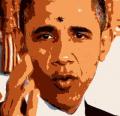How the Urantia Foundation Lost Their Copyright
For some time, I've threatened to write this up for the book thread. Now I've done it. As usual with my lengthier posts, I've waited to post it late in the thread - hundreds of comments, some topic drift, and new thread up.
©
How the Urantia Foundation Lost Their Copyright
Generally speaking, books are meant to inform, educate, inspire, or entertain.
Some books are meant to be believed.
Only a few extreme kooks would think there ever was a Middle Earth with wizards and hobbits. People are expected to believe that Joseph Smith used magic glasses to read golden tablets under an angel's tutelage. The Gospels challenge the reader, even when some parts might be considered less than fully valid, to accept that the life and teachings and person of Jesus are fundamentally historically true.
§ Origination
The Urantia Book (UB) purports to be written by angels, et al., and claims to be nothing less than the fifth epochal revelation of truth to our world.
The UB can be read for amusement, inspiration, perspective, and theological insight, without being "believed in," but the way it presents itself does challenge one to believe or not. Much like Jesus: He might be considered merely a Great Teacher or prophet, but that whole claim to Sonship with God, pre-existence and knowledge of life beyond this one, forces one to choose between dismissal of him as deluded ("Messiah complex"), or to accept belief in his claims (assuming one regards these claims as actually his, not as ex post facto Christian interpolations).
The Urantia Papers - 196 papers and a Foreword - which comprise the book originated in the 1930s and 1940s, but the Urantia Foundation, Chicago, didn't publish and copyright the book until 1955. The book has no listed author, just the various beings to whom the papers are attibuted, a Chief of Seraphim, a Divine Counselor, and others, all orders of personalities defined in the papers.
§ Promulgation
For decades, the book was quietly promoted by word-of-mouth. Readers, sometimes on their own, often through the encouragement of the Foundation-authorized Urantia Brotherhood, formed living-room groups to read and study the book. Some regional "societies" were formed, but private study was the main impetus.
By the 1970s and 1980s, the book began to take off, expanding beyond the sedate and straight original readership to include a large hippish, new-agey following, who had their own ideas about promotion and popularization of the revelation. (There have been personality cults - including one end-of-the-world faction - and those alleging to continue contact with the divine beings, channeling new and supplemental papers, but I won't go into that extreme fringe. The vast majority just study the original work.)
At a certain point, for reasons too complicated to bother with here, but in typical human fashion, there came a political split amongst the readership. As an example of the depth of the division, the Brotherhood was de-authorized by the Foundation, forming their own unofficial Fellowship, while the Foundation formed a new Brotherhood.
Importantly for my purpose here, while various factions disputed handling of the revelation, all basically adhered to its authenticity.
§ Litigation
Some bootleg versions of the book, and other matters, led to lawsuits, the most prominent of which dragged on for years, as the Foundation sought to enforce its copyrights and restrict the proliferation of the papers in other forms, translations, and the newly-arising digital format.
It emerged in court that the titles and sub-titles of the papers were humanly composed. However, although the Foundation's lawyers came very close to claiming otherwise, in the end, they had to testify that the papers had no human authorship. (I will not here go into either the skeptics' arguments for human authorship nor the available information regarding the mostly-mysterious origins of the papers.)
It was this admission by the Foundation of no human authorship that finally ended the legal disputes. In the end, it was the very believability of the superhuman origin of the papers that undid the Foundation's claim to exclusivity: the courts ruled that the Urantia Papers were a "found object," that could not, and should never have been, copyrighted!
©


